
There's a reason it's called personal finance. Your money is personal to you. And knowing how to spend and save is vital if you don't want to live in poverty. Millennials have a bad name when it comes to money, but that isn't necessarily the truth. Break free and listen to this expert's take on ten personal finance strategies for millennials.
1. Identify Short-Term and Long-Term Financial Goals

You don’t just get in the car and start driving. You have a destination in mind. Think of financial goals the same way. Just saying you want to save money isn’t going to cut it. Why do you want to save money? What are you saving for? How much do you need?
It’s overwhelming to think about the long-term goals at first. After all, some short-term needs must be addressed immediately. But go ahead and pick something in the future that you’d like. It could be owning a home or retirement. Setting both short-term and long-term goals is crucial for securing a prosperous financial future. Then, write the short-term and the long-term goals down with the date. You’ll change this over the years, but at least initially, you’ll have a destination in mind.
2. Develop a Spending Plan

That’s right, start out with your spending plan. Writing down how you spend your money is a fundamental step in effective financial management. You should write rent, auto, insurance, food, utilities, dinner out, concerts, etc. Where does every dollar of your paycheck go? Once you see how much you’re spending, look and see if there’s anything you can cut. Do you need coffee out every day? How about all those streaming services? Do you need every one of them?
Part of getting your personal finances in order is controlling the spending. Think of it as weight loss for your finances; cut the fat. Spending plans work well when they are aligned with your financial goals.
3. Have a Savings Plan
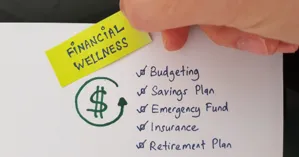
If you’ve been brutal with your spending plan, you should have a few dollars to save. Start with an emergency fund to create a financial safety net. Put some money away each paycheck. It could only be ten dollars, but it will go toward one of your goals. It also gets you into the habit of saving. And ensure you put those ten dollars in a separate account. Don’t leave it in your checking where you’ll end up spending it. Put it in a high-yield savings account. The online banks like Sofi and Ally can help you with that. Remember, adjust the amount you save as your salary or circumstances change. For example, if you’re making more money, save more money to enhance your financial security.
4. Pay Yourself First
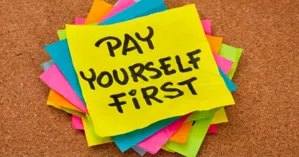
This goes with saving. When you get paid, before you do anything, put money into a savings account. This practice is a crucial part of effective financial planning. You still must pay your bills, so don’t put so much away that you can’t do that. Instead, get in the habit of peeling some excess bucks off the top when you are paid. So if you can afford to pay yourself ten dollars, do that before you do anything else. It comes down to out of sight out of mind. If you move it to a savings account immediately, you won’t spend it on that coffee.
5. Understand Debt
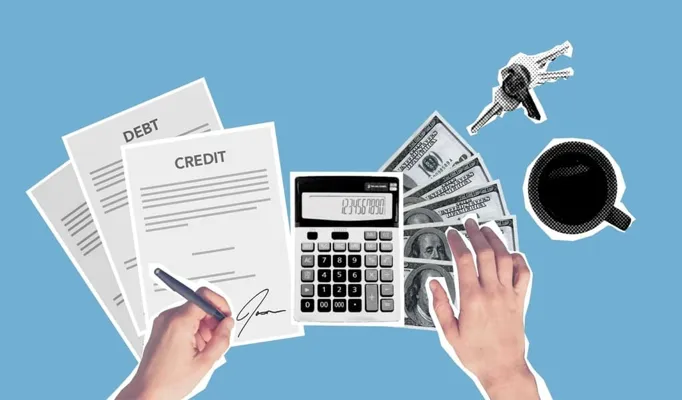
There are two types of debt, secured debt and unsecured debt. Secured debt requires collateral, while unsecured debt is based solely on your creditworthiness. A credit card is an example of unsecured revolving debt. A car or home is secured debt because you’ve put the car or house up as collateral. Understanding the difference between secured and unsecured debt is essential for managing your financial obligations.
Unsecured debt is expensive. If you don’t pay it off quickly, you may end up paying more than the item you bought was worth.
Not all debt is created equal. For example, credit card debt costs you more than student loan debt. That’s because the high interest you pay on credit card debt isn’t tax deductible. But the lower interest on your student loan debt is tax deductible.
It’s important to pay down your credit card debt quickly. Then, you can put more effort toward your student loan debt or any secured debt you have.
6. Paying Debt vs. Investing

You may want to defer paying it down too fast because you can deduct the interest from some debt, like student loans and mortgages. Concentrate on the low-lying fruit. But when considering investing, you need to look at the cost of borrowing versus what type of interest your investment will yield.
For example, if you’re paying 22 percent interest on a credit card and your investment will earn 10 percent interest, that’s a losing deal. You’re paying out more than you’re bringing in. You’d be better off diverting your resources toward paying that credit card down or off before you invest. Paying off high-interest debt is a crucial step towards achieving financial independence. Check with a qualified tax advisor if you can before investing when you have outstanding unsecured revolving debt.
7. Max Out Your 401K

The number one way of paying yourself first is to contribute to your employer’s 401(k) plan or similar retirement fund. This is especially true if the employer matches part of your contribution. It’s free money. If they match three percent, you pay three percent. The bottom line is that six percent of your salary goes into your retirement fund every paycheck. Contributing to a 401(k) is a key strategy for ensuring long-term financial stability. By not doing it, you’ll leave thousands of dollars on the table. Rake in that free money.
8. Just Say No to Credit Cards
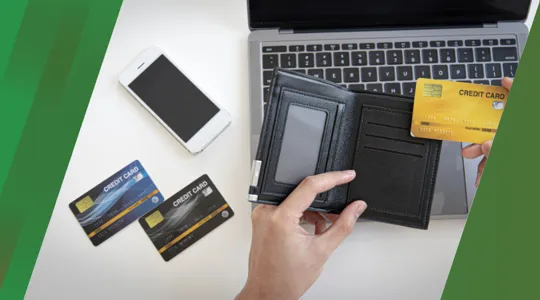
Although they can be an effective way to build credit, they have been many a millennial’s downfall. Using credit cards wisely is an important aspect of financial literacy. If you can’t afford to pay for the item with your debit card, you shouldn’t pay for it with a credit card. Carrying over a balance costs you. And you might think you’re getting all those rewards points, but they lose their value if you’re paying big interest every month.
9. Get Disability Insurance
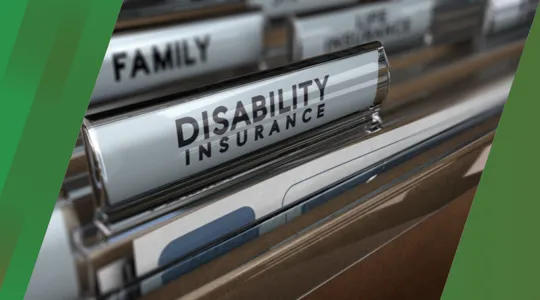
Most people gravitate toward life insurance. And if you have dependents, that’s important. You want them to be cared for. But what about you if you are injured or sick? Many millennials feel they’re indestructible and immune to accidents or illness.
But the fact is that accidents do happen, and people do get sick at all ages. If this were to happen to you, how would you financially survive? Disability insurance could be the difference between being homebound and homeless. It helps manage your financial obligations in case of an accident or illness. If your work offers it, make sure you buy it. And if they don’t, contact an insurance agent and get a policy.
10. Improve Your Financial Literacy
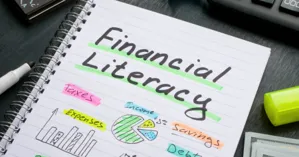
Read finance books and then read them again. Improving your financial literacy is crucial for making informed financial decisions. The more you know, the more successful you’ll be. Financial illiteracy is a big reason many millennials end up living in their parent’s basement. There are numerous books, blogs, and online programs available to you. And don’t think of it as boring. This is your life we’re talking about. And there’s nothing boring about that.
Conclusion
There are many strategies millennials can use to enhance their personal finances. The biggest ones are to know your spending habits and pay yourself first. Improving your financial knowledge is also a bonus to success.





